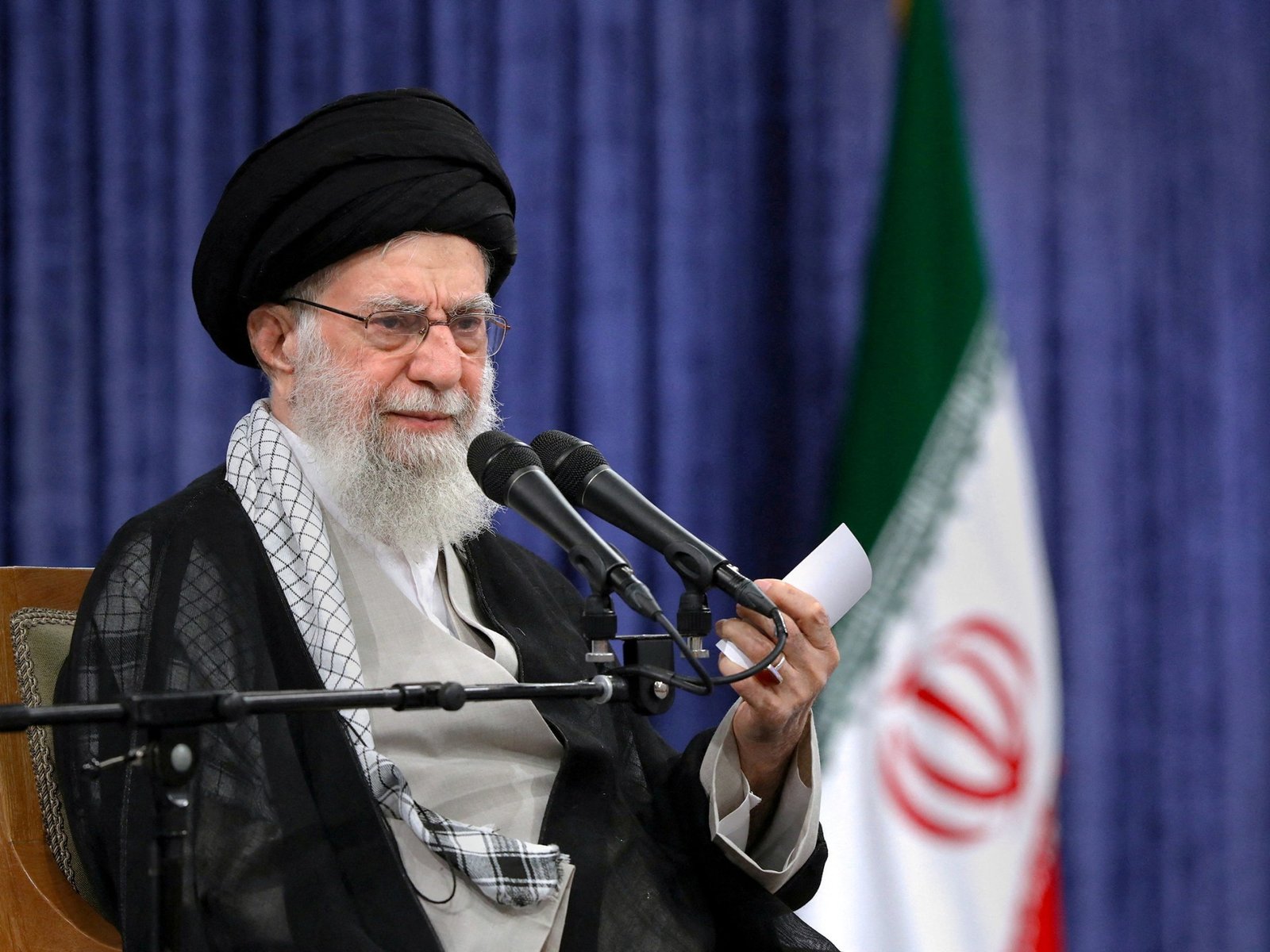Physical Address
304 North Cardinal St.
Dorchester Center, MA 02124
Physical Address
304 North Cardinal St.
Dorchester Center, MA 02124

Israel has attacked several Iranian nuclear equipment and military sites and carried out the murders of senior military officials and nuclear scientists. The original strike wave was made on Friday morning. Local media later reported a second, separate attack on the city of Tabriz, northwest, local media.
Aggression has led to fear of a broader military conflict in the region, in Tehran promises a “harsh reaction”.
Iran’s highest leader Ali Khamene warned that Israel was facing a “bitter and painful” fate after the attack.
“By the will of God, the strong hand of the Islamic Republic will not allow it (Israel) to become unpunished,” he said.
Israeli Prime Minister Benjamin Netanyahu said in a pre -recorded message that strikes were early on Friday on the pain of Iran’s nuclear infrastructure and ballistic missile factories.
The strikes are approved in the following places:
The images placed in the social media showed damaged structures throughout the Iranian capital, including residential buildings.
Later on Friday, the Israeli army announced that it had damaged the underground structures of Natanz uranium enrichment, including multi -storey enrichment grass with centrifuges, electric spaces and additional support infrastructure.
It added that “a vital infrastructure on the site, which allows it to be continuously operating and was attacked for further development of the Iranian regime project to obtain nuclear weapons.”
According to the Iranian media, Hossein Salami, Chief Commander of the Islamic Revolutionary Guard Corps and Chief of the Iranian Military Staff Mohammad Bagher was among those killed in the Israeli attack.
Nour News, a public -managed news sales point, said Khamene’s adviser to Ali Šamkhani was “critically injured.”
According to Tasnim, Khatam al-Anbiya headquarters Commander General Gholamali Rashid was killed.
Al jazeera tohid assadi, who reports from the Iranian capital Tehran, said, with the exception of military officials, the two best nuclear scientists were killed in targeted murders – Fereydoon Abbasi and Mohammad Tehranchi.
Abbasi was the former head of the Iranian nuclear organization, while Techranchi was the head of Islamic Azada University.
People in Iran woke up to the terrible scenes of destruction in their neighborhoods.
In a statement to Khamene, it was said that Israel “opened his dirty and bloody hand to the crime” against Iran, more than ever discovering its evil character, surprising the residential centers.
“The regime must wait for a heavy penalty.”
The Iranian media quoted the Iranian Armed Forces representative Abolfazl Shekarchi, saying that Israel would pay for the “heavy price” for attacks.

Eyal Zamir, Chief of the Israeli Military Headquarters, said Israel had reached a “return point” with an attack on Friday.
Describing early morning strikes to Iran as “the struggle for our existence,” Zamir said that Israel had launched attacks because it couldn’t “wait for another moment.”
He also said, “Anyone who tries to challenge us will pay a heavy price.”
Israeli opposition politician Jair Lapid posted a message X, previously on Twitter, congratulating the Israeli army for the attack.

Iran and the United States are currently involved in negotiations on Iran’s nuclear program aimed at reaching an agreement limited programs in exchange for sanction relief to Iran.
In an interview with Fox News, US President Donald Trump said Washington was not involved in Israel’s strikes.
“Iran cannot have nuclear bombs and we hope to return to the negotiating table. We’ll see,” Trump said, adding that the US will help defend Israel if Iran revenge.
Trump is expected to convene a meeting of the National Security Council on Friday morning, the White House said.
In a statement, US Secretary of State Marko Rubio said the US was not involved in the operation.
“Our top priority is the protection of American forces in the region,” Rubio said. “Let me say clearly: Iran should not target the US interests or staff.”
Opposition Democratic Senator Chris Murphy said Israel’s strikes were “clearly designed to ruin” Trump’s administration diplomacy with Iran.

Attacking nuclear equipment can lead to a number of unpredictable effects of activity, including radioactive leaks, explosions and long -term contamination.
Rafael Grosy, head of the International Nuclear Energy Agency (IAEA), says the UN organization closely monitors the situation in Iran.
He said IAEA could confirm that Natanz’s site was among Israel’s affected purposes.
“The agency is in contact with the Iranian authorities on the level of radiation. We are also facing our inspectors in the country.”

The United Nations Secretary General Antonio Guterres called for a “maximum restriction” in order to avoid “getting into a deeper conflict” after the Israeli strike.
“The Secretary General condemns the entire military escalation in the Middle East,” said his deputy representative Farhan Haak.
“He is particularly concerned about Israeli attacks on nuclear installations in Iran, while negotiations between Iran and the United States about the status of Iran’s nuclear program.”
Oman, which in brokerage talks between the US and Iran, called Israeli’s actions “a dangerous, reckless escalation representing an obvious violation” in the UN Charter.
“Such aggressive, permanent behavior is unacceptable and further destabilizes regional peace and security.
“The Sultanate of Oman is the Israel responsible for this escalation and its consequences, and calls on the international community to adopt a firm and a clear position to stop this dangerous action.”
